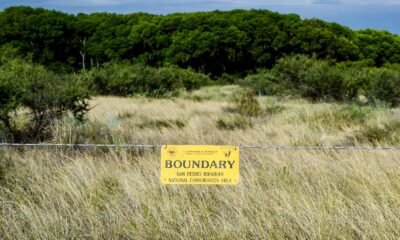Entertainment
Prop 139 Sparks Heated Debate on Parental Consent for Abortion Rights

PHOENIX — Governor Katie Hobbs has asserted that the approval of Proposition 139 will not permit minors to obtain an abortion without parental consent. This stance contradicts opponents who argue that the measure would establish a “fundamental right” to terminate a pregnancy, potentially encompassing individuals of all ages without any specified restrictions.
However, even some proponents of the initiative express uncertainty about whether existing parental consent laws would be upheld. Attorney General Kris Mayes, a supporter of Proposition 139, acknowledged that the matter may ultimately require judicial clarification.
Opposition groups aim to leverage concerns about parental consent to undermine discussions surrounding Proposition 139, which is backed by significant monetary contributions. Recent financial disclosures reveal that supporters have raised approximately $32.7 million to advocate for constitutionalizing abortion rights through this measure, which includes nearly $9.5 million collected between mid-July and the end of September.
Among the notable contributions is $4.6 million from the Fairness Project, a national group involved in similar efforts across the country. Additionally, the Advocacy Action Fund provided $3.25 million, sourced from California billionaires Eric and Wendy Schmidt, while the Planned Parenthood Action Fund contributed $2.26 million, largely for operational expenses.
As of now, the campaign has expended close to $18.7 million on various initiatives, leaving Arizona for Abortion Access with just over $12 million to mobilize voters. Recently, they pledged $1 million in organizing grants to 13 local groups across several counties, aiming to enhance canvassing efforts and voter education.
Conversely, the opposition committee, It Goes Too Far, has reported total donations of under $1.3 million and currently has approximately $543,643 available. Their largest contribution comes from Tempe retiree David Lambert, followed by a $100,000 gift from Washington attorney John Connelly.
A recent poll by the New York Times and Siena College indicated that 58% of likely Arizona voters favor the constitutional amendment, with about a third opposed.
If passed, Proposition 139 would invalidate current Arizona laws that restrict abortion after 15 weeks, with no exceptions for rape or incest. The proposed amendment asserts that “Every individual has a fundamental right to abortion,” and would limit state regulations that infringe upon this right prior to fetal viability, which is currently defined as between 22 and 24 weeks.
Cindy Dahlgren, communications director for the Center for Arizona Policy Action, argues that the language of Proposition 139 suggests it could nullify parental consent requirements. She pointed out that the wording establishing a constitutional right applies to all individuals, thus potentially including minors.
In contrast, Hobbs argues that despite any changes to existing abortion laws, minors will still face certain limitations. She emphasized that healthcare providers would need to adhere to general legal standards concerning minors, including obtaining parental consent before performing surgical procedures.
Proponents of Proposition 139 themselves seem uncertain. Attorney Andrew Gaona, representing Arizona for Abortion Access, confirmed that the measure establishes a fundamental right to abortion but admitted its implications for existing laws, such as parental consent, remain ambiguous.
Attorney General Mayes supported the measure while also acknowledging its potential impacts on current regulations are not fully understood. If passed, she stated her office would review how it interacts with existing laws.
There is an existing provision that allows some minors to bypass parental consent through a judicial bypass, enabling a judge to authorize an abortion if the minor demonstrates sufficient maturity. In 2022, out of 250 abortions performed on girls under 18, 37 were authorized through this process.
Legal experts continue to debate the implications of enshrining such a right in the Arizona Constitution. Comparisons have been drawn to the right to bear arms, which, despite being protected, is subject to numerous regulations. Attorneys argue that the language of Proposition 139 establishes a more absolute right concerning abortion than the qualified right associated with firearms.


















